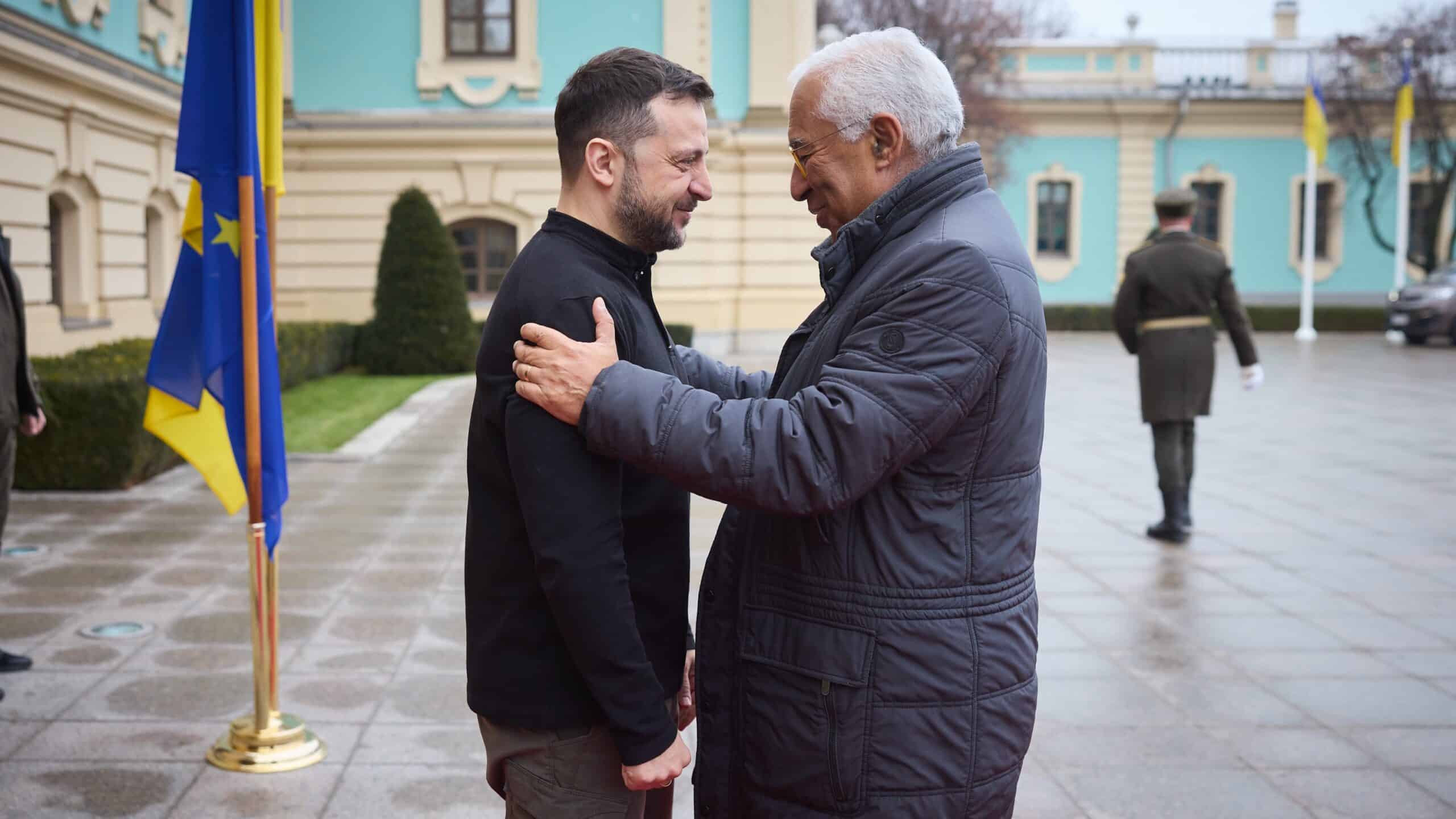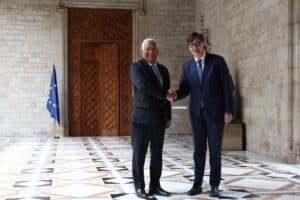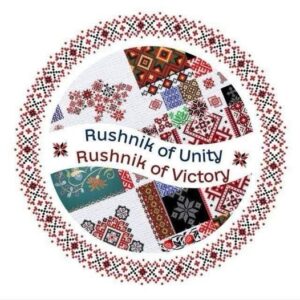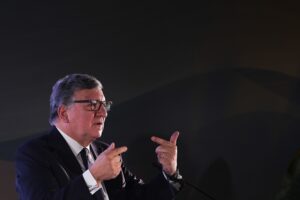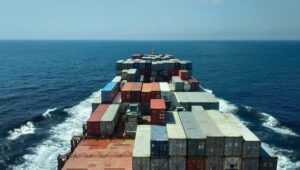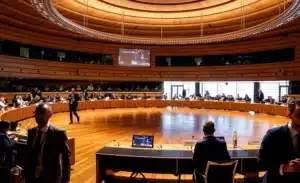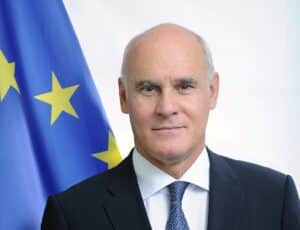Visit seeks to underline Europe’s “unwavering support for Ukrainian people”
Portugal’s former prime minister António Costa chose to mark the official start of his presidency today of the European Council by visiting Ukraine – in the company of the EU’s High Representative for Foreign and Security Policy, Kaja Kallas, and the Commissioner for Enlargement, Marta Kos – the objective being to commemorate the embattled country’s independence day, and to reaffirm Europe’s commitment to supporting Ukraine irrespective of the uncertainties stacked up on the horizon.
At a press conference this morning, standing alongside Ukrainian President Volodymyr Zelenskyy, Mr Costa called for respect for the sovereignty of Ukrainian territory. “Ukrainian sovereignty, the integrity of its territory and its borders must be respected (…) Ukraine has the right to self-determination”, he said.
“Being here today in Ukraine, on this particular day, has a very special meaning for me. On 1st December, for almost 400 years and every year, my country has celebrated Independence Day: our national sovereignty, our right to self-determination and the right to territorial integrity and respect for borders,” he said, stressing that “Ukraine, like Portugal and like all countries in the world, has the same right”.
Visiting Independence Square in the Ukrainian capital, 11 years after the wave of protests calling for Ukraine to join the European Union, Mr Costa emphasised the courage of the Ukrainian people and the “common future”. “This monument is clear proof that when we talk about war, we’re not just talking about weapons, but above all about people, families, people who died, who suffered fighting for their country and for the right to a just and lasting peace,” he said.
As reports explain, Mr Costa was speaking to civil society leaders from organisations that support veterans of the Ukrainian war – and he said how “hard” it was to see “so many young people as veterans”.
The message, however, was one of positivity. He said the work of the Vice-President of the European Commission and the European Commissioner for Enlargement “will ensure a common future for Ukraine and the Ukrainian people in our European Union” – something Ukraine has been striving for for many years. Indeed, he gave some ideas how integration would begin, starting next year, he said, with interconnection in roaming and certain parts of the internal market.
Mr Costa also used the occasion to invite President Zelenskyy to his first European summit, scheduled for December 19.
The visit was hugely symbolic, in that it comes in the wake of days of intense Russian attacks on Ukraine’s critical energy infrastructure, and at the start of the country’s bitterly cold season (for which the EU has already mobilised aid).
Zelenskyy and Costa discuss ‘European and global issues’
Volodymyr Zelenskyy posted his thoughts with images of the meeting this morning, saying: “I am pleased to welcome @antoniolscosta, President of the European Council, to Ukraine today on the very first day of the new leadership in the European institutions.
“We discussed our vision for European and global affairs — current challenges and prospects.
“This symbolic start to the new leadership’s work reflects the key priorities for all of us in Europe. Peace is the foundation, and we will continue to do everything possible to end this war, which Russia has unleashed not only against Ukraine but also against a united Europe, as soon as possible and to strengthen Europe – both the EU institutions and the policies that support every European nation.
“I am grateful for the support Ukraine has received since the very first day of Russia’s full-scale invasion”, he concluded.
This statement marks the change in the Ukrainian president’s resolve. He is now open to the possibility of a ceasefire with Russia in which Russia maintains control over Ukrainian regions – something that initially few Ukrainians were prepared to countenance.
In Mr Costa’s speech at the handover ceremony in Brussels on Friday, he also mentioned Ukraine, stressing that “peace cannot be the peace of cemeteries. Peace cannot be capitulation. Peace cannot reward the aggressor. Peace in Ukraine has to be just; it has to be lasting and it has to be based on international law”.
Mr Costa very recently was awarded the UNESCO Félix Houphouët-Boigny award for peace – an award that raised some questions, in that it was not immediately clear what put the former Socialist leader in the same league as previous winners, which include world-famous figures like Nelson Mandela, Angela Merkel and Jimmy Carter. It may have been that the award was given for what António Costa seeks to achieve over this two and a half year mandate leading the European Council. ND
Source: LUSA/ Observador

